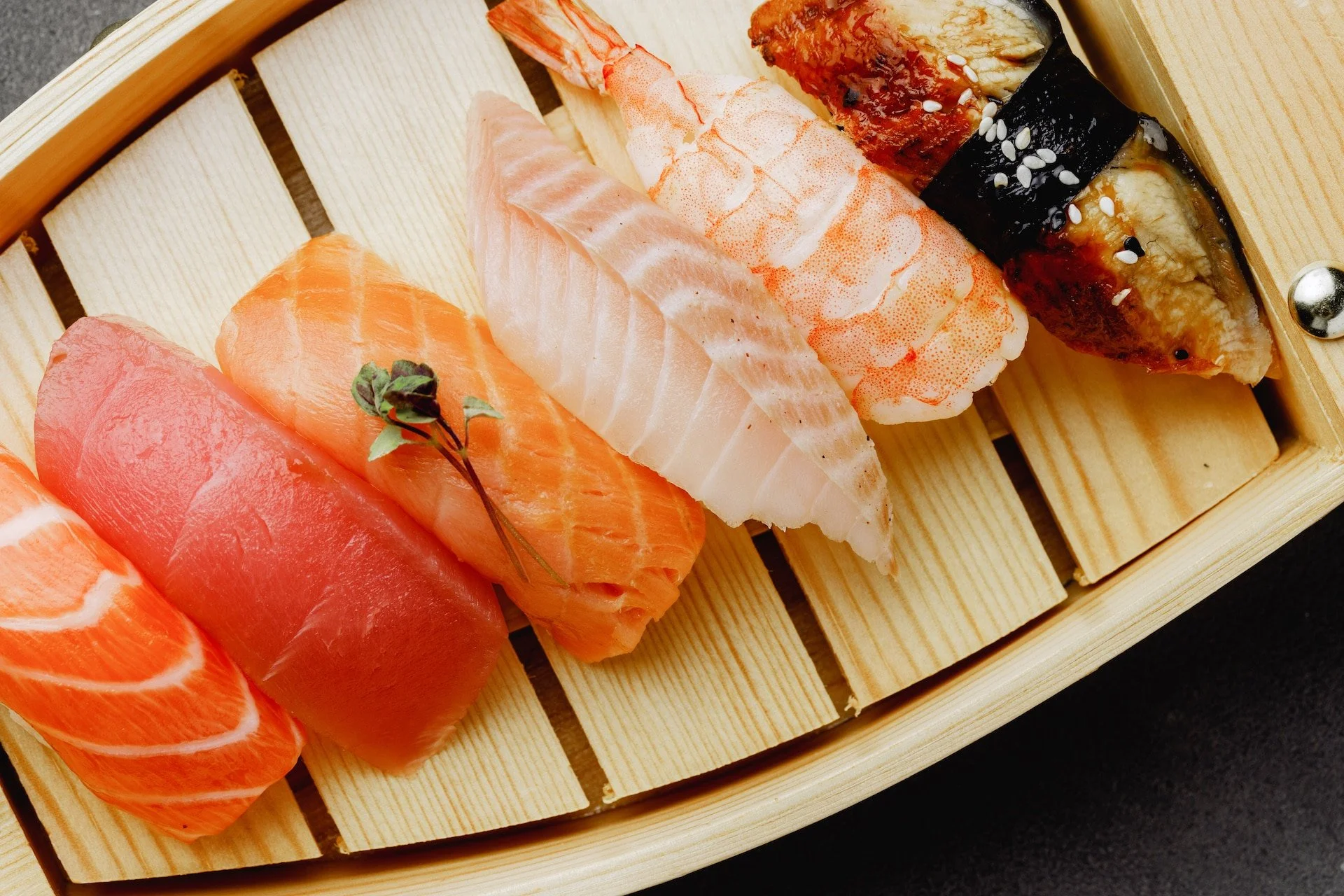Can I Eat Nigiri During Pregnancy?
At a Glance:
⚠️ Concern: Nigiri often contains raw fish, which can carry harmful bacteria or parasites.
🔥 Risk Level: High for raw fish varieties; low when made with fully cooked or vegetarian toppings.
✅ Safe Practices: Choose nigiri made with cooked shrimp, eel, tamago (egg), or vegetarian options. Avoid raw fish unless it's from a trusted source and has been properly frozen.
Nigiri is a popular type of sushi consisting of a slice of fish (often raw) laid over a small mound of vinegared rice. While it’s a favorite among sushi lovers, many pregnant individuals wonder: Is it safe to eat nigiri during pregnancy? The answer depends on what kind of nigiri you’re eating.
In this post, we’ll break down the potential risks and safe options so you can make informed choices while enjoying sushi during pregnancy.
What Are the Risks of Eating Raw Fish While Pregnant?
Raw fish can harbor harmful pathogens including:
Listeria monocytogenes
Salmonella
Toxoplasma gondii
Parasites like Anisakis
Pregnant women are about 10 times more likely to get listeriosis than other healthy adults. Because immune systems are altered during pregnancy, it is harder for pregnant women to fight off infections.
FDA – Listeria & Pregnancy
Listeriosis, although rare, can lead to serious complications such as miscarriage, premature birth, or stillbirth.
Types of Nigiri: Which Are Safe and Which to Avoid
Here’s a breakdown of common nigiri toppings and their safety during pregnancy:
✅ Generally Safe (Fully Cooked or Vegetarian):
Ebi (cooked shrimp)
Unagi (grilled freshwater eel)
Tamago (Japanese sweet omelet)
Kani (imitation crab – usually cooked)
Vegetarian options like avocado or grilled tofu
Make sure the rice and toppings are freshly prepared and served cold or warm—not at room temperature for long periods.
⚠️ Best Avoided (Raw Fish):
Maguro (raw tuna)
Sake (raw salmon)
Hamachi (yellowtail)
Ika (squid)
Tako (octopus, sometimes lightly cooked)
Mackerel or other oily fish with higher mercury levels
If you really want raw fish, only consider sushi-grade fish that has been flash-frozen to kill parasites—and even then, only from a highly reputable sushi establishment.
Mercury Considerations in Nigiri
Some fish used in nigiri—like tuna, yellowtail, or mackerel—contain higher mercury levels, which should be limited during pregnancy. Too much mercury can affect fetal brain development.
The FDA recommends:
Eating 2–3 servings per week of low-mercury fish
Avoiding high-mercury fish like king mackerel, swordfish, shark, and tilefish
Health Benefits of Cooked Nigiri During Pregnancy
When made with safe ingredients, nigiri can provide:
Omega-3 fatty acids for baby’s brain development (from low-mercury fish)
Protein for maternal energy and tissue growth
Iodine and selenium important for thyroid and metabolic health
Folate and iron from nori seaweed (if included)
Just be mindful of the sodium content in soy sauce and wasabi if you're sensitive to salt or have high blood pressure.
Conclusion: Choose Cooked Nigiri and Skip the Raw
Nigiri can still be a satisfying part of your pregnancy diet if you choose the right varieties. Opt for cooked or vegetarian nigiri to avoid foodborne risks and mercury concerns, and skip raw fish versions unless you're 100% sure they meet safety standards.
Disclaimer: The content on this website is for informational purposes only and is not intended as a substitute for professional medical advice, diagnosis, or treatment. Always seek the advice of your physician or another qualified health provider with any questions regarding your health, pregnancy, or medical conditions.
References:
A review of guidance on fish consumption in pregnancy: Is it fit for purpose?:
https://www.ncbi.nlm.nih.gov/pmc/articles/PMC6033312/
American College of Obstetricians and Gynecologists:
FDA: Listeria from Food Safety for Moms to Be:
https://www.fda.gov/food/health-educators/listeria-food-safety-moms-be
